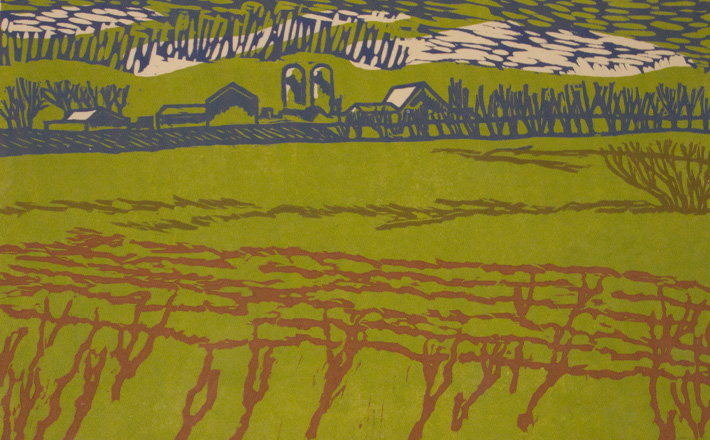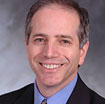Commentary on Psalm 49:1-12
“The One Who Dies with the Most Toys Wins.”
Forgive my crude attempt at upending the philosophy of a well-known bumper sticker (“The one who dies with the most toys wins”) at least from my vantage point behind the fine vehicles that have proclaimed such a message.
At every turn Christ’s followers, regardless of their social status, are assailed by images of material wealth. It’s difficult not to want what others have: play with the latest Smartphone, drive the newest SUV, and travel to the best destinations. The bane of North American Christianity has been its materialism, embracing a culture of abundance and advancement. In one way or another, we all wrestle with how the “American Dream” compromises our commitment to the way of the Cross. Psalm 49 is our wake-up call; a priceless gem of biblical wisdom more precious than all the wealth the world can give us.
This Sunday’s psalm lection consists of only the first twelve verses of Psalm 49. This “half-psalm” is a one of the curve balls that the common lectionary occasionally throws to preachers and worship leaders. In the case of Psalm 49, however, there’s no anticipation of singing or praying the second half on the following Lord’s Day. The challenges posed by this psalm-ostomy are particularly acute, since there are good reasons for treating the whole psalm as a masterful work of literary art and theological acumen.
As fascinating as it would be to ask why Psalm 49 underwent this involuntary surgery, we must explore the possibility of using the lection as it is given to us. The literary art of which I spoke actually works to our advantage as we focus on verses 1-12, for a strong case can be made that verses 13-20 form something of a parallel panel to the psalm’s first part. Notice, for instance, the undeniable echo between verses 12 and 20, rounding out each section. Then, too, some scholars reasonably describe the balance between these panels in direct parallelism or as a chiasm, though these structures are not without their limitations.[1]
The point is that the key themes of the psalm are found in both sections, and there is nothing prohibiting the preacher from dipping into the well of the second half to illustrate ideas from the first. Here are three considerations to guide your preparation.
First, the psalm contains explicit reference to Israel’s wisdom traditions, with at least five terms (wisdom, meditation, understanding, proverb, riddle) in verses 3-4, most of which occur frequently in Proverbs. There is no consensus among scholars over the precise function or the term “riddle” in the poem.[2] Nevertheless, the general tone of wisdom’s applicability to every station in life comes through loud and clear: “both low and high, rich and poor together” (verse 2). We’re all laid bare before the stunning verdict of death that unites us all as “mortals [who] cannot abide in their pomp” (verse 12). I think Brueggemann rightly calls attention to the “egalitarian lessons” that can be learned only when rich and poor are taught together from God’s wisdom.[3]
Second, in spite of the group learning experience, the psalm nevertheless has a differentiated audience and, therefore, can be imagined as having a different impact depending on one’s sense of his or her wealth. The poor are afraid and don’t need to be. The rich don’t appear to be afraid but ought to be. The message for the poor is that they ought not to fear troubles brought on by the sins of the rich and powerful (verses 5-6, 16). The message for the rich is that no amount of wealth can ransom them from death (verses 7-9, 16-17).
In language reminiscent of the Old Testament reading today (Ecclesiastes 2:18–23), the poet reminds both audiences that even wisdom cannot keep one from dying (verses 10-11). Thus, while the main purpose of the psalm is to reassure the poor and oppressed that God will see to everyone’s ultimate fate, churches should be cautious about assuming that modern Christians easily match up with the poor and lowly of Psalm 49. And the painful reality of global economics reveals that even moderate-income folks in the West have incredible wealth compared to 99% of the world’s population.
Third, the psalm does not provide the complete or last word on resolving economic disparity today. Most scholars agree that ancient Israel’s outlook on death focused exclusively on its absolute finality. If some references to Sheol appear to imply a continued existence, it is never one that is sought or enjoyed. Nevertheless, some interpreters believe that this psalm does open the door to a different sort of hope, at least if the wording of verse 15 be taken as a declaration that God will ultimately deliver the speaker from the grave.
For example, Derek Kidner calls verse 15 “one of the mountain-tops of Old Testament hope.”[4] And even if John Goldingay is correct that life after death is not the point of the verse, Christian interpretation of the psalm may include New Testament use of other psalms (Psalm 16 in Acts 2:25-28). In the meantime, we who live in this world of plenty and scarcity must act with determined justice to fend off the temptation to do nothing and simply let God sort it all out. We may really want the rich to get their comeuppance, but we have an evangelistic obligation to share the good news of gospel, which for them (and us) will involve the bad news about our riches.
[1] David J. Zucker, “The Riddle of Psalm 49” Jewish Biblical Quarterly 33 (2005): 143-152; J. David Pleins, “Death and Endurance: Reassessing the Literary Structure and Theology of Psalm 49,” Journal for the Study of the Old Testament 69 (1996): 19-27.
[2] Leo Perdue, “Riddles of Psalm 49,” JBL 93 (1974):33-42; Katherine J. Dell, “’I will solve my riddle to the music of the lyre’ (Psalm XLIX 4[5]),” VT 54 (2004): 445-458; and Zucker (see note 1, above).
[3] Walter Brueggemann, The Message of the Psalms: A Theological Commentary (Minneapolis: Augsburg, 1984), 107.
[4] Derek Kidner, Psalms 1-72: An Introduction and Commentary (London: InterVarsity Press, 1973), 182.


August 4, 2013